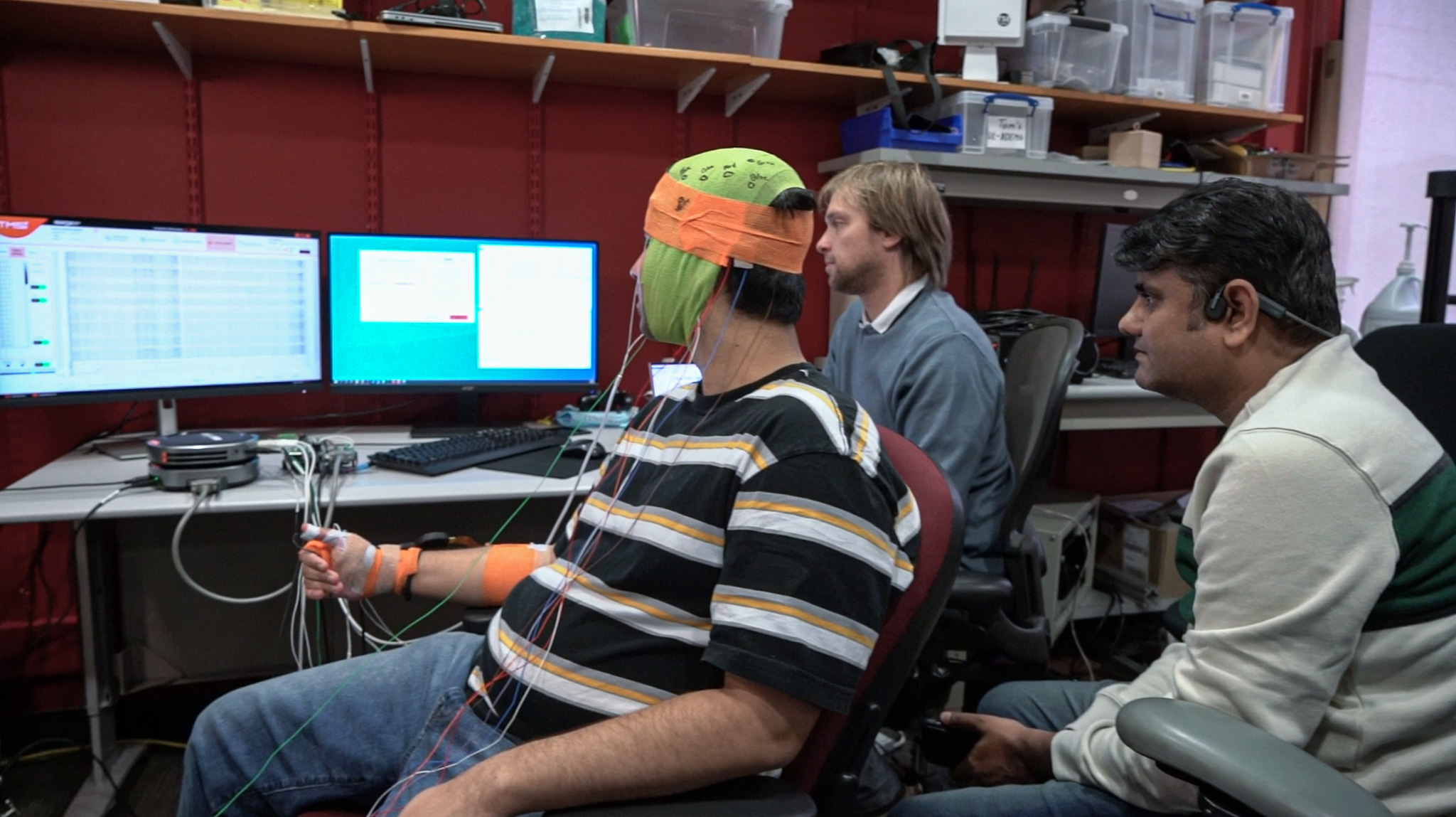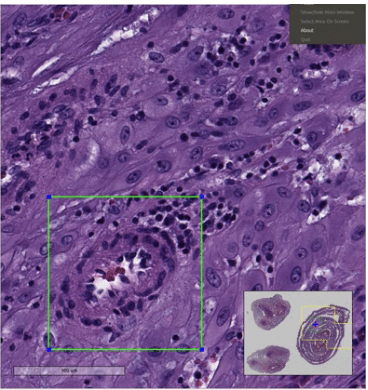A Peek Inside CMU Mechanical Engineering Department’s Startup Engine
 From improving public health to making more efficient, more sustainable energy sources, researchers in Carnegie Mellon University’s Department of Mechanical Engineering devote their time to solving the world’s most complex problems. Jon Cagan, Mechanical Engineering Department Head and Professor, believes the department is defining the future of what mechanical engineering, and really what engineering in general, will become.
From improving public health to making more efficient, more sustainable energy sources, researchers in Carnegie Mellon University’s Department of Mechanical Engineering devote their time to solving the world’s most complex problems. Jon Cagan, Mechanical Engineering Department Head and Professor, believes the department is defining the future of what mechanical engineering, and really what engineering in general, will become.
“Our faculty are working on the cutting edge of technology, with an eye toward impact, both commercial and societal. By creating and applying fundamental knowledge to nontraditional, interdisciplinary research, we are able to innovate in the space between what’s known and what’s next to turn gaps into opportunities and translate technology to practice,” Cagan said.
“A part of that process is the drive toward translation, where the department has become an entrepreneurial ecosystem through a culture of identifying and providing solutions to ‘wicked’ problems.”
With nearly a dozen active startups, CMU’s Department of Mechanical Engineering is making a real-world impact across industries:
Healthcare:
 Lifeware Lab’s wireless, sticker-like, electronic patches monitor health vitals. The company’s ProPatch is designed for use in the field by first responders and medics working in remote and harsh environments. Once applied over a patient's heart, machine learning models help to identify when the patient is stable versus when they require immediate intervention. Lifeware Labs was co-founded by 4 people including Carmel Majidi, a materials expert, and Phil LeDuc, an expert at the intersection between mechanical systems and biology.
Lifeware Lab’s wireless, sticker-like, electronic patches monitor health vitals. The company’s ProPatch is designed for use in the field by first responders and medics working in remote and harsh environments. Once applied over a patient's heart, machine learning models help to identify when the patient is stable versus when they require immediate intervention. Lifeware Labs was co-founded by 4 people including Carmel Majidi, a materials expert, and Phil LeDuc, an expert at the intersection between mechanical systems and biology.
Placenta AI LLC’s mission is to revolutionize maternal health through AI-driven placenta tissue analysis. A leading cause of maternal and baby death, preeclampsia is difficult for providers to diagnose. Placenta AI’s technology can identify decidual vasculopathy, an indicator of preeclampsia, at super-human levels. Placenta AI was co-founded by Jon Cagan, an expert of artificial intelligence and shape-based design and analysis, and Phil LeDuc, an expert at the intersection between mechanical systems and biology, along with individuals at UPMC and the local entrepreneurial ecosystem.
Reach Neuro is empowering stroke survivors to continue their path to recovery through innovative neurotechnology that works with the nervous system to restore a patient’s control to their shoulder, arm, and hand. The company has demonstrated the feasibility and benefits of their novel treatment in seven people with chronic hemiplegia post-stroke. Reach Neuro was co-founded by Doug Weber, an expert of neurotechnology and engineering.
Energy and Environment:
 Arieca Inc is developing high performance thermal interface materials for semiconductors used in data centers, AI-enabled personal computing, and power electronics. The company works closely with their customers to quickly develop complete cooling solutions that are ready for high-volume manufacturing. Arieca Inc was co-founded by Carmel Majidi, a materials expert. NovoLINC, Inc. is a pioneering startup in advanced thermal interface solutions, headquartered in Pittsburgh, PA. The company is revolutionizing thermal management with groundbreaking nanocomposite technology, achieving record-low thermal resistance and maximizing the efficiency of high-power systems.
Arieca Inc is developing high performance thermal interface materials for semiconductors used in data centers, AI-enabled personal computing, and power electronics. The company works closely with their customers to quickly develop complete cooling solutions that are ready for high-volume manufacturing. Arieca Inc was co-founded by Carmel Majidi, a materials expert. NovoLINC, Inc. is a pioneering startup in advanced thermal interface solutions, headquartered in Pittsburgh, PA. The company is revolutionizing thermal management with groundbreaking nanocomposite technology, achieving record-low thermal resistance and maximizing the efficiency of high-power systems.
NovoLINC, Inc. was co-founded by Sheng Shen, an expert of thermal science and nanotechnology. Power3D is reinventing the way batteries are built by pioneering a revolutionary manufacturing approach that combines 3D printing with semiconductor fabrication processes to enable compact, high-energy-density batteries for the next generation of consumer electronics, wearables, and medical devices. Power3D was founded by Rahul Panat, an expert of micro-scale additive manufacturing.
.jpg) SeaLion Energy addresses a critical challenge in electrification: maximizing usable battery capacity without shortening battery life. Its proprietary conducting plastic coating extends battery cycle life by up to 10×, enables faster charging, and enhances operational safety. Backed by a U.S. Department of Energy ARPA-E CIRCULAR award to strengthen domestic battery supply chains, SeaLion Energy is now scaling this technology for commercial deployment. The company was founded by Reeja Jayan, an expert in energy storage materials.
SeaLion Energy addresses a critical challenge in electrification: maximizing usable battery capacity without shortening battery life. Its proprietary conducting plastic coating extends battery cycle life by up to 10×, enables faster charging, and enhances operational safety. Backed by a U.S. Department of Energy ARPA-E CIRCULAR award to strengthen domestic battery supply chains, SeaLion Energy is now scaling this technology for commercial deployment. The company was founded by Reeja Jayan, an expert in energy storage materials.
Sudoc is putting chemistry in balance with nature to safely replace toxic processes and destroy dangerous compounds in our water. The company is bringing the sustainable oxidation catalysts developed at CMU’s Institute for Green Science to market for a wide range of chemical oxidation applications including advancing wastewater treatment and reuse, and removing harmful chemical contaminants and mold. Sudoc was co-founded by Ryan Sullivan, an expert of environmental chemistry.
Robotics and Computation
ESTAT Actuation is creating hardware products that unlock a leap in performance for customers producing robots, safety equipment, and motion control systems. Their proprietary clutch technology is 10x lighter, 10x more compact, and 1000x more energy efficient than conventional clutch technologies. ESTAT Actuation was co-founded by Carmel Majidi, a materials expert.
HexSpline3D LLC is commercializing software packages on image processing, mesh generation, volumetric spline modeling, as well as finite element and isogeometric analysis solvers for industry application to solve multiphysics biological and physical problems. HexSpline3D LLC was founded by Jessica Zhang, an expert of computational science and engineering.
And more
Through a continuous process of tech transfer across the department, several additional companies are in formation, including those that leverage cutting-edge AI and ML technologies, and other areas of innovation. The department is defining the future of mechanical engineering, while translating foundational research to commercial and societal impact.